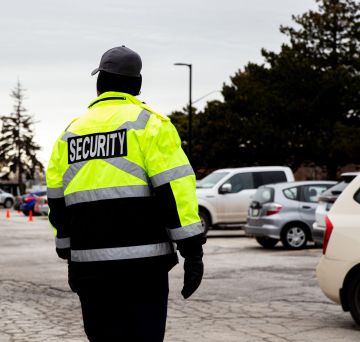Contact security
Security on our Waterford Campuses can be contacted on the 24-hour number: 087 9400888
The role of security personnel is to provide staff, students and visitors with a safe and secure environment which facilitates and promotes the transfer of knowledge and the desire to research and develop new ideas and solutions.
Security personnel are tasked by the Institute with ensuring the safety and well being of staff, students and visitors while engaged in these activities. In particular Security Personnel duties include:
- The prevention and investigation of crimes against the person. E.g trespass, assaults, robbery, indecent exposure etc.
- The prevention and investigation of property crimes, for example wilful damage, theft, burglary etc.
- The maintenance of public order
- The management of emergencies in conjunction with the Estates office, for example alarm evacuations (refer to appendix 5.4), bomb threat procedures (refer to appendix 5.5), injury, chemical spills etc.
- Any other duties which may arise from time to time including car park management, event management. Please see Scope of services contained in appendix 5.8.
- Contracted Security Personnel are authorised by the Institute to carry out the above duties by virtue of this policy and the terms and conditions of the Institute’s security contract with the external security provider.
A copy of the Institutes CCTV Policy is contained in appendix 5.10 of this document. Closed circuit television (CCTV) has been installed in many buildings and on the grounds of Waterford Institute of Technology. The system comprises of a number of cameras installed at strategic locations. The cameras are fully operational and either fixed or with pan, tilt and zoom facilities. Images are a mixture of colour and monochrome. The system is operated from a control centre on the Cork Road campus and can also be accessed remotely.
Objectives of the CCTV System
To enhance safety and to protect members of the Institute community, Staff, Students, and visitors to the University. To help reduce the fear of crime. To help deter and detect crime and provide evidential material for criminal court proceedings.
General principles of operation
The information obtained by CCTV is controlled in accordance with the Data Protection Acts 1988 & 2003. Signage has been placed throughout the Institute buildings and grounds to inform users of the Institute that CCTV is in operation. The CCTV System will be operated fairly, within the law, and only for the purposes for which it was established.
Storage and retention
Section 2(1) (c) (iv) of the Data Protection Act states that data ‘shall not be kept longer than is necessary for’ the purposes for which it is obtained. The Institute currently uses a hard drive system to record images and images are kept no longer than a 28 day cycle.
Supply of data to An Garda Siochana
If the Gardai require CCTV footage for a specific investigation, the Institute (or security company acting on behalf of the Institute) must satisfy itself that there is a genuine investigation underway. For practical purposes, a phone call should be made to the Station sergeant to confirm that an investigation is authorised. The date, time and all other details of the conversation should be recorded in the daily log book.
Access requests
Any person whose image has been recorded has a right to be given a copy of the information recorded. To exercise that right an application should be sent through the Freedom of Information Office at the Institute.
Practically, a person must provide necessary information by detailing information such as the date, time, location and duration of the recording. They should also provide a passport sized photograph of themselves. Where the image is of such poor quality as does not clearly identify an individual, that image will not considered to be personal data. Before releasing this information the images of others will be obscured. In the event of an incident South East Technological University reserves the right to review the content and disclose the information arising as appropriate. Any information will be forwarded via the Freedom of Information Officer.


